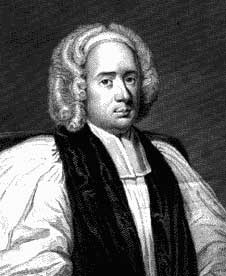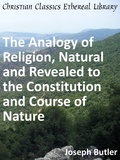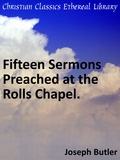Joseph Butler
Anglican Bishop of Durham, theologian, apologist, and philosopher
Biography
Joseph Butler (May 18, 1692—June 16, 1752) was an English bishop, theologian, apologist, and philosopher. He was born in Wantage, Berkshire, England.
He is most famous for his "Fifteen Sermons on Human Nature" (1726) and "Analogy of Religion, Natural and Revealed" (1736). The Analogy is an important work of Christian apologetics in the history of the controversies over Deism. Butler’s apologetic concentrated on discerning analogies to the death and resurrection of Christ in the natural world (such as the caterpillar turning into a butterfly).
Butler’s arguments combined a cumulative case for faith using probabilistic reasoning to persuade Deists and others to reconsider orthodox faith. Aspects of his apologetic reasoning are reflected in the writings of twentieth century Christian apologists such as C. S. Lewis and John Warwick Montgomery.
The "Sermons on Human Nature" is commonly studied as an answer to Hobbes’ philosophy of ethical egoism. These two books are considered by his proponents to be among the most powerful and original contributions to ethics, apologetics and theology which have ever been made. They depend for their effect entirely upon the force of their reasoning, for they have no graces of style.
Butler died in 1752 in Bath, Somerset. His admirers praise him as an excellent man, and a diligent and conscientious churchman. Though indifferent to general literature, he had some taste in the fine arts, especially architecture.
In the calendars of the Anglican communion his feast day is June 16.
[Adapted from Wikipedia]


